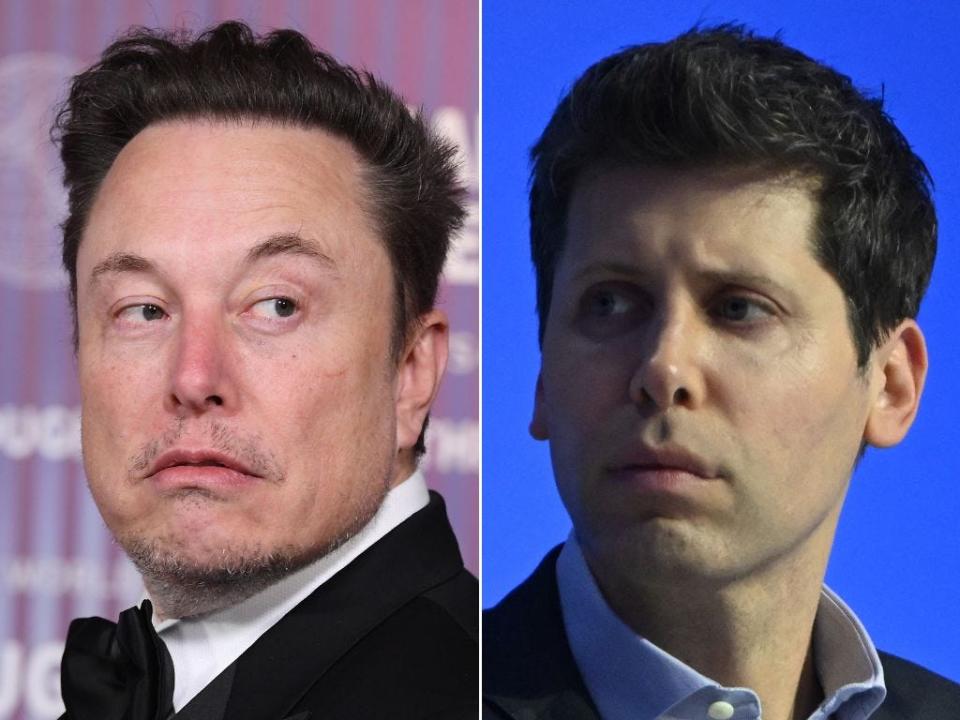Elon Musk dropped his Open AI lawsuit, but he isn't done with Sam Altman and the AI race yet

Elon Musk withdrew his lawsuit against OpenAI and its CEO, Sam Altman, on Tuesday.
Musk accused OpenAI of violating its nonprofit mission when he filed the lawsuit in February.
But dropping the case doesn't mean that Musk is burying the hatchet with Altman just yet.
Elon Musk might have withdrawn his lawsuit against OpenAI and its cofounders on Tuesday, but he certainly isn't giving up on winning the AI race just yet.
The mercurial billionaire filed a lawsuit against the ChatGPT maker in February, accusing OpenAI of violating its nonprofit mission by partnering with Microsoft. Musk cofounded OpenAI with its current CEO, Sam Altman, but left its board in 2018.
"More on this later," Musk said of the lawsuit's withdrawal early on Wednesday morning.
But the decision to withdraw the case, just a day before a judge was set to consider OpenAI's request to dismiss it, probably isn't a sign of Musk burying the hatchet with Altman.
For one, Musk seemed furious when Apple unveiled its widely anticipated partnership with OpenAI on Monday. Shortly after the announcement, Musk threatened to prohibit Apple devices at his companies.
"If Apple integrates OpenAI at the OS level, then Apple devices will be banned at my companies," Musk wrote in an X post. "That is an unacceptable security violation."
And visitors will have to check their Apple devices at the door, where they will be stored in a Faraday cage
— Elon Musk (@elonmusk) June 10, 2024
This is despite Apple's assurances that "privacy protections are built in for users who access ChatGPT." The iPhone maker said in a press release on Tuesday that OpenAI wouldn't be able to track their users' IP addresses or store their requests.
Representatives for Musk and OpenAI did not immediately respond to requests for comment from BI sent outside regular business hours.
Musk doesn't need the lawsuit to tangle with OpenAI
Stepping back from all the drama, Musk's goal with the OpenAI lawsuit might have had less to do with winning the case and far more to do with publicly dragging Altman and OpenAI.
"These types of lawsuits can air a lot of dirty laundry, and it can be a major distraction that could impact their day-to-day operations," David Hoffman, a contract law expert from the University of Pennsylvania, told BI's Grace Kay in March.
And for what it's worth, Musk seems to have spent the interim period repositioning his companies for the AI age.
Musk has spent the past few months pitching investors on his vision for EV giant Tesla as an "AI or robotics company."
Besides teasing a new robotaxi concept, Musk has also hyped the company's Optimus robots as being "more valuable than everything else combined."
"If you value Tesla as just like an auto company, fundamentally, it's just the wrong framework, and if you ask the wrong question, then the right answer is impossible," Musk said in an earnings call in April.
Then, in late May, Musk revealed that his AI startup xAI raised $6 billion for its Series B funding round, giving it a total valuation of $24 billion. This makes Musk's xAI the second-most valuable AI company behind OpenAI, which is valued at around $80 billion.
With his chess pieces in place, Musk seems ready to take on OpenAI.
Now the ball's in Altman's court. Your move, Sam.
Read the original article on Business Insider

 Yahoo Autos
Yahoo Autos 